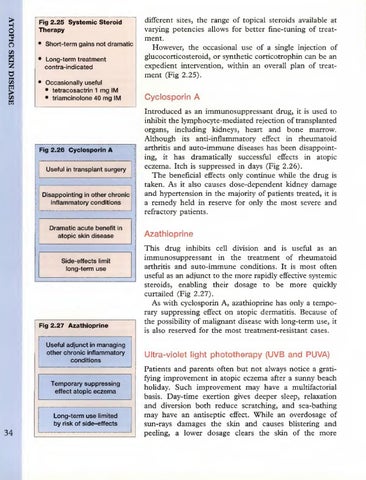Fig 2.25 Systemic Steroid Therapy • Short-term gains not dramatic • Long-term treatment contra-indicated • Occasionally useful • tetracosactrin 1 mg IM • triamcinolone 40 mg IM
Fig 2.26 Cyclosporin A Useful in transplant surgery
Disappointing in other chronic inflammatory conditions
Dramatic acute benefit in atopic skin disease
Side-effects limit long-term use
Fig 2.27 Azathioprine Useful adjunct in managing other chronic inflammatory conditions
Temporary suppressing effect atopic eczema
Long-term use limited by risk of side-effects
different sites, the range of topical steroids available at varying potencies allows for better fine-tuning of treatment. However, the occasional use of a single injection of glucocorticosteroid, or synthetic corticotrophin can be an expedient intervention, within an overall plan of treatment (Fig 2.25).
Cyclosporin A Introduced as an immunosuppressant drug, it is used to inhibit the lymphocyte-mediated rejection of transplanted organs, including kidneys, heart and bone marrow. Although its anti-inflammatory effect in rheumatoid arthritis and auto-immune diseases has been disappointing, it has dramatically successful effects in atopic eczema. Itch is suppressed in days (Fig 2.26). The beneficial effects only continue while the drug is taken. As it also causes dose-dependent kidney damage and hypertension in the majority of patients treated, it is a remedy held in reserve for only the most severe and refractory patients.
Azathioprine This drug inhibits cell division and is useful as an immunosuppressant in the treatment of rheumatoid arthritis and auto-immune conditions. It is most often useful as an adjunct to the more rapidly effective systemic steroids, enabling their dosage to be more quickly curtailed (Fig 2.27). As with cyclosporin A, azathioprine has only a temporary suppressing effect on atopic dermatitis. Because of the possibility of malignant disease with long-term use, it is also reserved for the most treatment-resistant cases.
Ultra-violet light phototherapy (UVB and PUVA) Patients and parents often but not always notice a gratifying improvement in atopic eczema after a sunny beach holiday. Such improvement may have a multifactorial basis. Day-time exertion gives deeper sleep, relaxation and diversion both reduce scratching, and sea-bathing may have an antiseptic effect. While an overdosage of sun-rays damages the skin and causes blistering and peeling, a lower dosage clears the skin of the more
